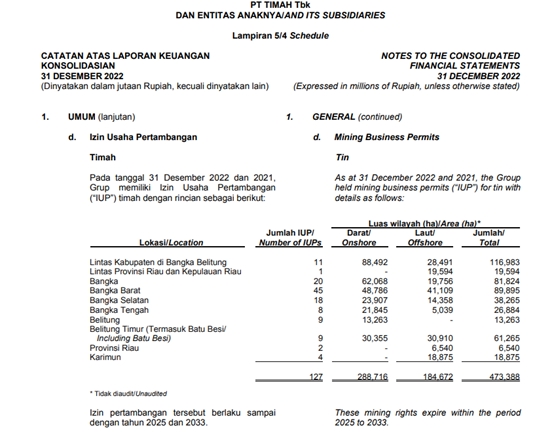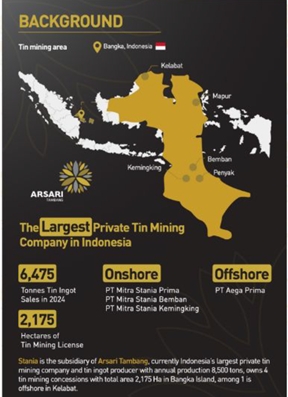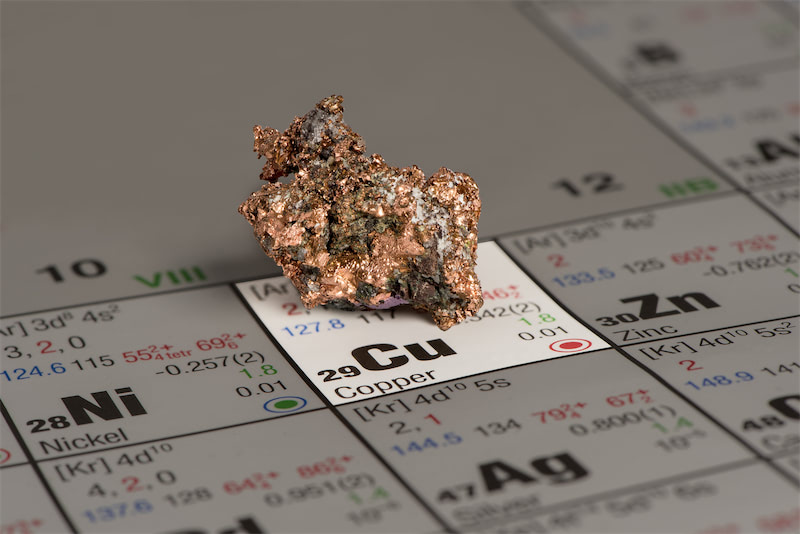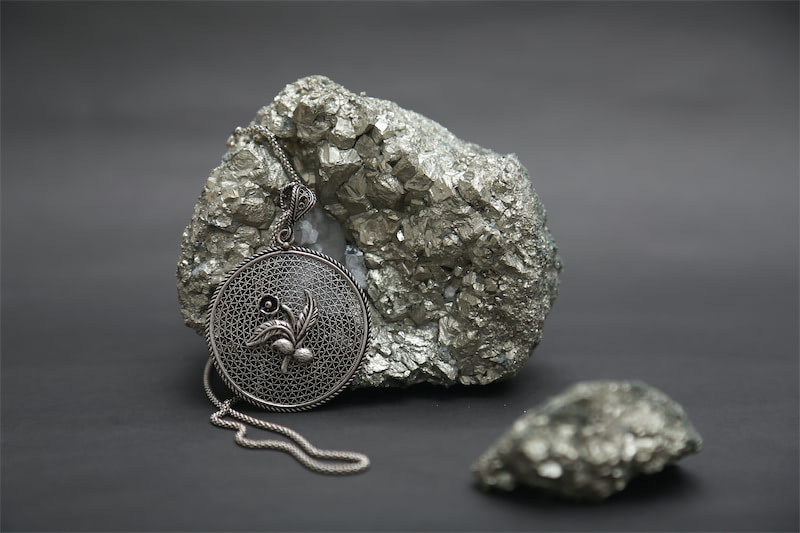According to an SMM survey of local smelters in Indonesia, the recent crackdown on illegal mining launched by Indonesia has had no direct impact on the state-owned tin smelter Timah or the largest private tin mining company, Arsari Tambang.
In terms of mining area scale, the total area of mines in the Bangka Belitung region of Indonesia is approximately 530,000 hectares. Among these, PT Timah held 125 Mining Business Permits (IUPs) in 2023-2024, with a total mining area of 472,900 hectares (including 288,600 hectares on land and 184,300 hectares offshore).

Arsari Tambang's subsidiary Stania holds four tin mining concessions, with a total mining area of 2,175 hectares (one offshore mining area and three onshore mining areas), and an annual tin production of 8,500 mt.

The impact of this crackdown is primarily concentrated on small and medium-sized private smelters reliant on illegal mines: as government control intensifies, raw material supply for these enterprises continues to shrink, and their operating rates may come under pressure. The government is also tracing the legality of their raw material sources over the past few years while simultaneously monitoring current operations. However, considering that leading Indonesian smelters previously suspended exports from July to August due to mining license renewals, and these licenses have now been updated, exports are expected to normalize in September-October. Thus, in the short term, the crackdown's impact on Indonesia's total tin ingot exports is limited. If subsequent crackdown measures are strictly implemented, this will also free up market space for state-owned enterprise smelters, potentially further increasing their share of mine resources and tin ingot production.
The proportion of illegal mines in the overall supply still requires ongoing tracking, while another layer of uncertainty exists on the Indonesian tin supply side: after the adjustment to the RKAB approval cycle, enterprises must resubmit relevant documents by October 2025. Based on past approval paces, the actual approval process may extend to early 2026, with a significant volume of tin ingot shipments also delayed until February-March of the following year. This adjustment could lead to a phase of tight global tin supply in the short term, potentially driving periodic price adjustments, and market expectations for Indonesian tin supply have become more cautious.
For an in-depth understanding of Indonesia's tin supply landscape, current demand status, and export trends, the 2025 SMM (15th) Tin Industry Chain Conference will be held in Gejiu Tin Capital, October 22-24. The Director of Business Development from PT Timah in Indonesia will share insights on-site. Industry colleagues are welcome to attend and exchange ideas.
https://apac-tin.metal.com/

![The Most-Traded SHFE Tin Contract Opened Lower and Then Traded Stronger, Spot Market Recovers Amid Downtrend [SMM Tin Midday Review]](https://imgqn.smm.cn/usercenter/WWXJU20251217171753.jpg)
![The most-traded SHFE tin contract fluctuated rangebound during the night session, with downstream enterprises mostly following up with small-lot transactions. [SMM Tin Morning Brief]](https://imgqn.smm.cn/usercenter/bYFQn20251217171752.jpg)
